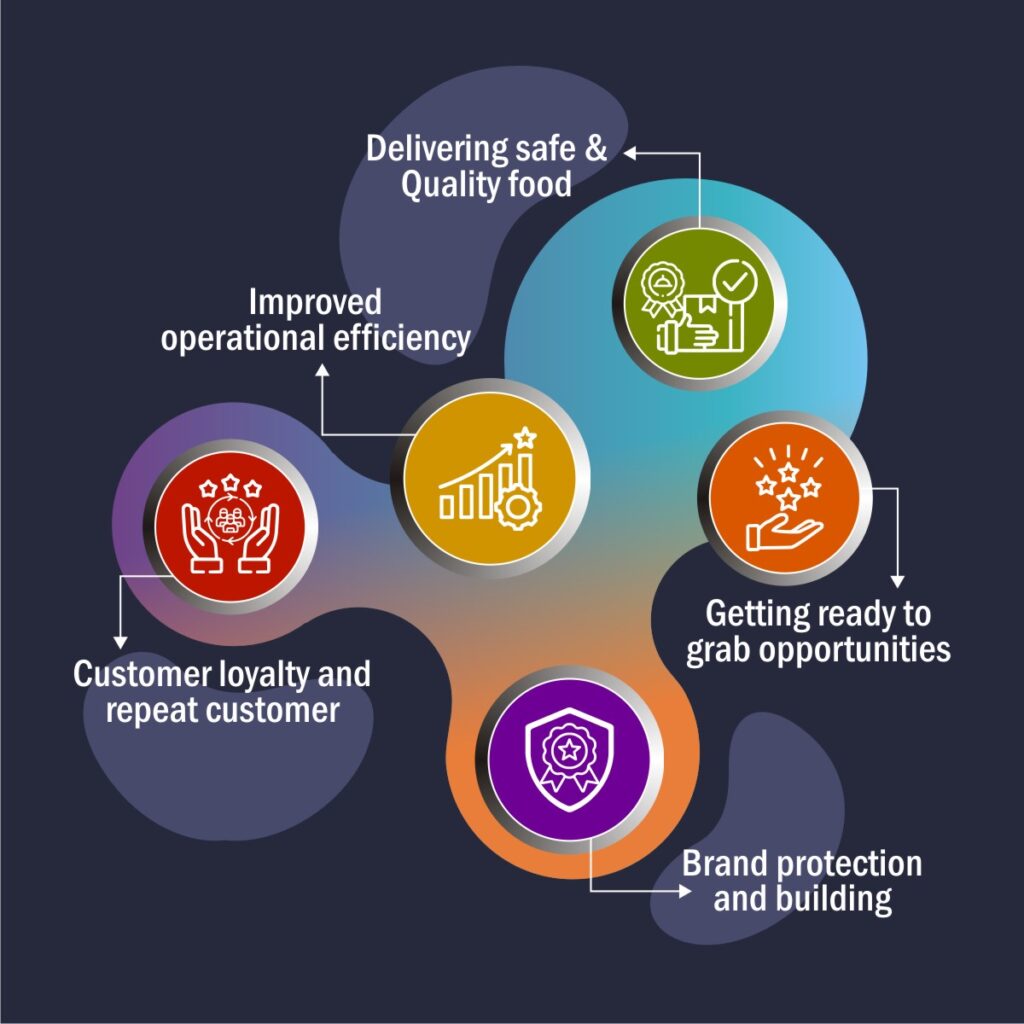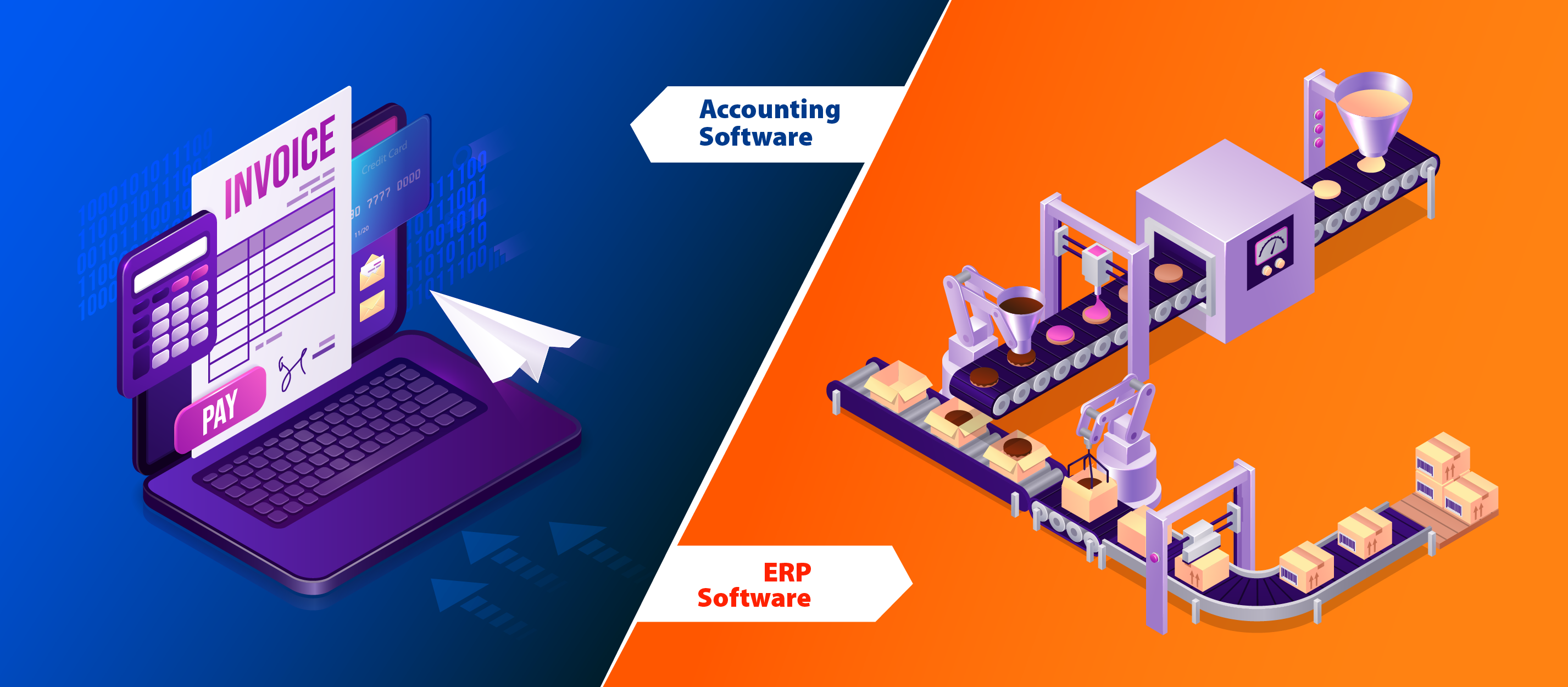
ERP (Enterprise Resource Planning) is a robust platform that imprints every business transaction across an organization. In addition to playing a major role in saving costs, ERP also enhances operational, reporting, and resource efficiencies.
The food industry, with its typically dynamic nature, frequently changing demands, seasonal variations, shifting trends, stringent food safety laws, rising raw material prices, and growing consumer awareness, finds it difficult to survive without an ERP system.
But what do business owners consider ERP software to be?
Many food manufacturers now recognize and understand that while an ERP system is the biggest infrastructural investment for their organizations, it has proven to be an asset. They believe that a well-implemented ERP system is an ongoing source of cost savings with excellent operational capabilities, allowing companies to endure and prosper even in challenging times.
Consequently, they are ready to invest significant amounts of money in ERP. In this context, expecting a return on investment (ROI) is natural.
However, the fact is:
ROI does not come merely from implementing an ERP system. Instead, it comes from the process improvements that the ERP supports. An ERP system introduces numerous new processes that can lead to significant improvements in organizational performance.
It is up to the organizations to choose which processes to adopt. In other words, it depends on how well an organization utilizes this tool.
There are organizations that have achieved considerable profits, multiple times their investment. Simultaneously, there are organizations that have not reaped the desired benefits. This contradiction raises the question: “How do you measure the ROI of your ERP system?”
Let’s discover the answer!
Identify Quality Benefits:
Operational Efficiency:
- Labor Cost Savings: Measure the cost reduction due to improved processes.
- Time Savings: Calculate the time saved in processes like order processing, invoicing, reporting, etc.
- Inventory Management: Assess the reduction in inventory carrying costs due to better inventory management.
Financial Performance:
- Revenue Increase: Determine the impact on revenues due to faster order processing or improved customer service.
- Cost Reduction: Evaluate the reduced IT costs, procurement costs, overhead costs, etc.
Compliance and Risk Management:
- Error Reduction: Identify and quantify the reduction in errors and the associated cost savings.
- Compliance Cost: Assess the value of penalties avoided.
Calculate Total Costs:
Calculating ROI starts with calculating the total cost incurred, which involves:
1. Initial Costs:
- Software Purchase or Subscription Costs: Initial purchase or subscription costs.
- Implementation Costs: Costs of consulting, customization, data migration, and testing.
- Training Costs: Expenses for training employees to use the ERP system.
2. Ongoing Costs:
- Maintenance and Support: Annual maintenance fees and support contracts.
- Upgrades: Costs associated with system upgrades.
- Operational Costs: Costs for hardware, additional licenses, and any new hires or role changes necessary for ERP management.
Establish a Time Frame:
Decide on a time frame over which ROI will be measured. An ideal time frame is 3-5 years.
Calculate Net Benefits:
Net Benefits = Total Benefits – Total Costs
Calculate ROI:
Once these figures are calculated over a period of 3-5 years, ROI can be calculated as follows:
ROI = (Net Benefits / Total Costs) * 100
It is clear from the formula that ROI is always calculated as a percentage.
Example:
Suppose we are calculating ROI over a span of 3 years:
- Total Benefits: $100,000 per year, totaling $300,000 in 3 years.
- Total Costs: $75,000 per year, totaling $225,000 in 3 years.
Net Benefit = $300,000 – $225,000 = $75,000
ROI = ($75,000 / $225,000) * 100 = 33.3%
Non-Quantifiable Elements that Facilitate ROI:

- Delivering Safe & Quality Food: Meeting regulatory compliance to ensure safety is crucial for the food industry. ERP supports all aspects of compliance, saving resources, time, and money, which can be allocated to other growth-driving activities.
- Getting Ready to Grab Opportunities: ERP helps you innovate faster and more cheaply, identify trends and patterns, and prepare for upcoming regulations. For example, ERP software can lower time to market, helping you stay well-prepared to hit the market at the right time with the right products.
- Brand Protection & Building: ERP provides quick access to data, which is a significant time saver and limits the impact of issues such as cross-contamination, undeclared allergens, spoilage, improper labeling, or packaging.
- Customer Loyalty & Repeat Business: By complying with regulations and ensuring food quality and safety, you gain customer loyalty and repeat business. ERP ensures timely deliveries and accommodates last-minute changes, customer specifications, and customizations, resulting in happy and satisfied customers.
- Improved Operational Efficiency: ERP helps control yield improvement, track the production process to identify deviations, analyze raw material requirements, and ensure proper planning, reducing wastage and unnecessary procurement.
The Bottom Line:
Having an end-to-end Food ERP software system built specifically for the food industry offers numerous tangible and non-tangible benefits such as cost savings, reduced wastage, adherence to compliance, secured brand image, readiness for recalls, and customer loyalty. These benefits collectively translate to a greater ROI.
BatchMaster is an end-to-end ERP software tailored for the food industry and its micro-verticals. It offers a host of capabilities, making it a perfect fit for the food industry. To learn how the software can benefit your food industry, write to us at sales@batchmaster.co.in.



















